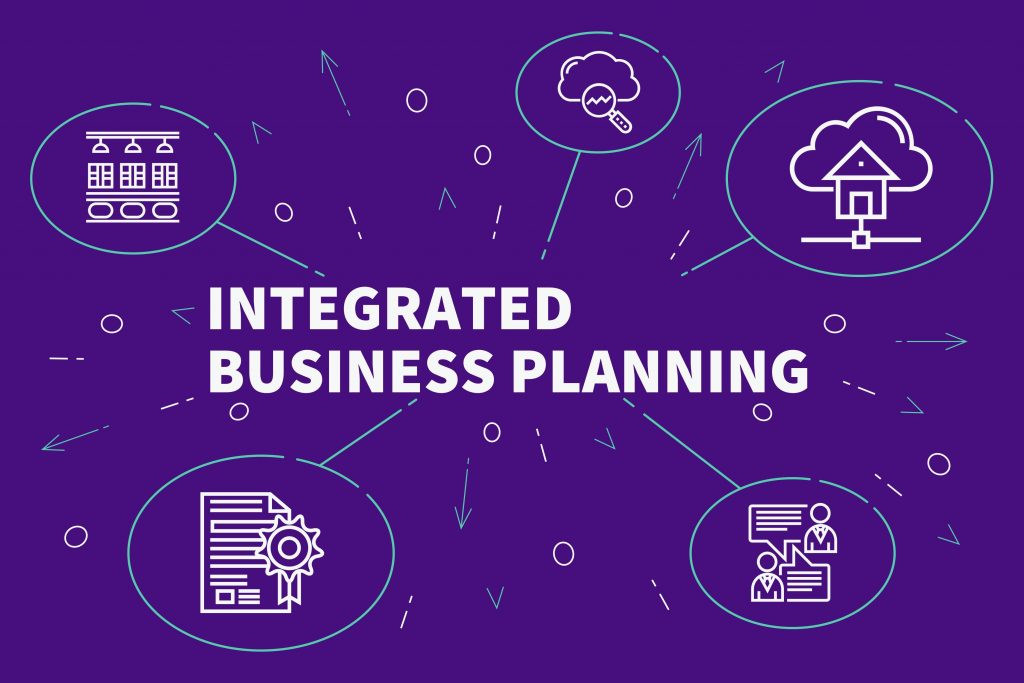
Many organizations are still struggling to understand and implement basic Sales and Operations Planning processes to cope with supply chain disruption. Thanks to constant industry innovation, Integrated Business Planning (IBP) is now also becoming a common topic of conversation. Unfortunately, the definitions of S&OP and IBP are often confusing as they seem to be both distinct and overlapping processes. Are they truly separate processes and how should organizations factor them into their supply chain strategy?
Like all processes that are broad in scope, finding a unified definition can be challenging. From our viewpoint, I think it’s possible to see common agreement on some key areas and capabilities of the two processes.
What is Sales and Operations Planning (S&OP)?
There’s a clue in the name. Sales and Operations Planning software is, as it was originally defined, a process that focuses on the operational aspects of the business: orders, material, capacity, inventory, etc. It’s a valuable process that brings together different stakeholders to arrive at a consensus plan and drive optimized fulfillment of customer demand (read our whitepaper on getting real ROI out of the S&OP process. It has also been able to provide the executive suite with a view of the potential financial and business results based upon that plan.
What is Integrated Business Planning (IBP)?
IBP builds upon the S&OP process in terms of additional scope and breadth:
Scope – Rather than being recipients of the planning output, Finance and the C-Suite are now included as a formal part of the process and really become the starting point for the planning process. Their input represents the primary enterprise goals that must be achieved to meet shareholder expectations and all subsequent planning needs to be aligned accordingly. The overall process is still iterative, with collaboration to evaluate trade-offs between competing KPIs but Integrated Business Planning puts the highest level business goals first and foremost. Other activities, such as S&OP, still take place but as a second level of the overall process.
Breadth – Traditional Sales & Operations Planning software thinks about products and finished goods from a pure supply chain perspective but IBP puts more focus on the product and includes additional factors that can have an impact on business success. Examples of these factors may be product development operations: more than just potential lifecycle phase in/out, product development may require manufacturing innovation or extensive prototyping which has implications on financial goals. In addition, in highly regulated industries, there could be implications to product safety that vary across the globe and would impact potential revenue streams.
Integrated Business Planning provides a framework to incorporate all of these additional stakeholder viewpoints and unique factors that have tangible implications to the overall business plan.
IBP – a Methodology, a Process or a Technology?

In reality, Integrated Business Planning is undoubtedly all of the above. To achieve the end result, organizations need to develop a process to support the necessary collaboration and flow of information needed. The amount of information required and the level of analytics and optimization that need to be applied will require the use of key technology to develop actionable insight and plans from disparate data and goals.
It would be possible to develop a basic level of competency using manual methods and traditional planning solutions (aka spreadsheets) but that is probably only true for smaller businesses or extremely simple business models. I would propose that the vast majority of medium and large organizations would struggle to successfully implement any reasonable process without a comprehensive suite of applications to support them.
Does DELMIA Provide an IBP Solution?
At DELMIA, our philosophy has always been that every organization’s supply chain and challenges are unique; that there is no “one size fits all” solution that will satisfy all customers. Our Supply Chain Planning and Optimization software matches that philosophy by allowing customization and mapping of the capabilities that solve the critical challenges that are important to our customers. If financial metrics or sustainability are priority KPIs along with inventory and materials, then they need to be included in driving the planning process and part of the optimization puzzle. If other factors outside traditional supply chain operations impact business success, they should similarly be part of the planning process.
Therefore, DELMIA has always supported the key elements of an Integrated Business Planning (IBP) software process. If customers are on the first step of the process, they may start with implementing a more advanced forecasting process, then move to supply planning and finally to more of a closed loop process that includes more stakeholders. It doesn’t matter whether it’s labeled “S&OP” or “IBP”; it’s whatever is needed to meet the business objectives that matter to them. The biggest pitfall in implementing technology is trying to buy an “off the shelf” solution and process that simply doesn’t map to the uniqueness of an internal business model.
So, clearly, there is a difference between Sales and Operations Planning and Integrated Business Planning but those differences only matter in the context of what is truly needed to support business innovation. Still confused? We’d love to hear your questions. Connect with us on our Planning and Optimization community read our whitepaper on Business Based Optimization, or contact us here.

